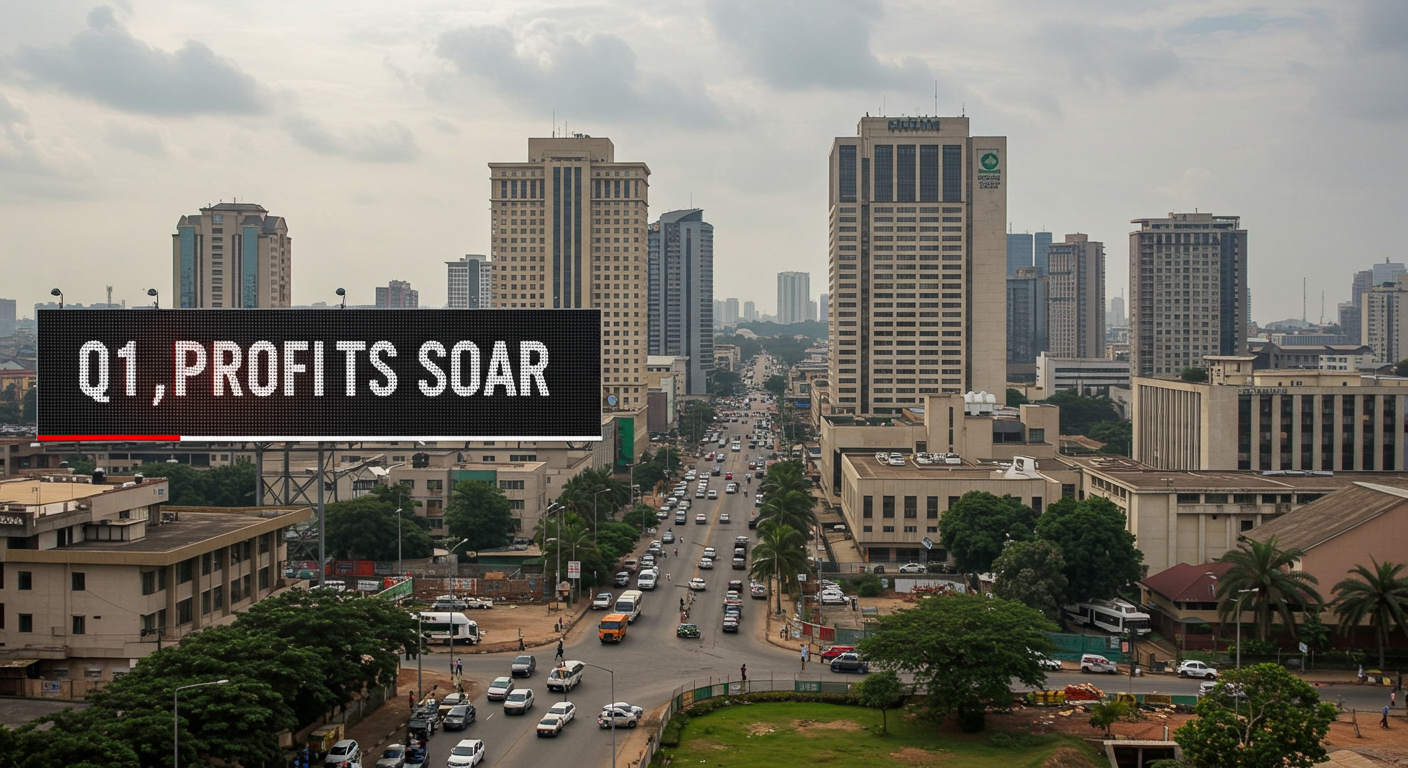As the first quarter of 2025 closes, the financial landscape is bustling with numbers and the stories behind them. The first quarter has set an intriguing tone for the remainder of the year, with Nigerian banks reporting record profits and global tech titans navigating AI-powered futures. But it’s more than simply the numbers; it’s what they reveal about the momentum behind the scenes.
Wema Bank began the quarter with an unexpected bang, posting a pre-tax profit of N41.1 billion, a massive 269% increase over the same period last year. Fueled largely by increased interest income and improved operating efficiency, it was a bold declaration by rising interest income and improved operating efficiency, it was a bold declaration that, even in uncertain economic times, some local players are finding ways to win.
MTN Nigeria followed suit, not just rebounding but restoring investor faith following years of currency troubles and regulatory changes. With a Q1 profit of N133.7 billion and over a trillion naira in sales, MTN demonstrates that solid fundamentals, combined with improved cost management and lower dollar exposure, can transform the narrative.
Not only are banks and telecommunications companies creating headlines.
Julius Berger Nigeria recorded robust infrastructure expansion, owing to increased federal expenditure on roads and bridges. Nigerian Breweries, despite inflationary pressures and increased production costs, maintains market share through judicious pricing and a consumer-first attitude. International breweries, supported by AB InBev, relied on export markets and premium offers to stay afloat during margin pressure.
Meanwhile, advertising giant WPP, which owns agencies like as Ogilvy and GroupM, reported a slight worldwide rebound in ad expenditure, indicating a cautious return to pre-pandemic spending, with Africa and the Middle East contributing incremental gains. Google’s parent company, Alphabet, also reported robust ad revenue and rising cloud revenues, driven by businesses investing in AI capabilities.
Speaking of AI, Meta’s Q1 report was difficult to ignore. With WhatsApp officially surpassing 3 billion monthly users and Meta’s family of apps generating $42.4 billion in sales, the platform is more than simply surviving. It’s prospering. Interestingly, WhatsApp has now become the leading platform for Meta AI interaction, indicating that the business sees messaging as the next frontier for smart personal assistants.
Closer to home, WhatsApp’s business integration is quietly transforming customer care for Nigerian SMEs, while Meta’s growth into AI-powered solutions might change the way small firms expand customer support and sales, all from their phones.
But what does all of this signify for the second quarter?
Read also: Sahara Group Foundation Reaffirms Commitment to African Entrepreneurs with MADAA Reloaded
With borrowing rates, foreign exchange, and inflation continuing to weigh on domestic players, while adaptability remains critical. Banks’ revenue may fall if monetary tightness eases. Telcos will continue to try different pricing methods. For brands, consumer mood in Q2 will be significantly influenced by disposable money, and players such as Nigerian Breweries may need to increase their innovation to retain volume.
Globally, we’re monitoring how Meta’s AI bets pan out, how WPP’s media transition performs, and whether Big Tech’s Q1 increase is sustainable or just the quiet before another regulatory storm.
If Q1 was the exam, Q2 represents the stress. The results are in, but the tale is still evolving.







Comment
No comments found.